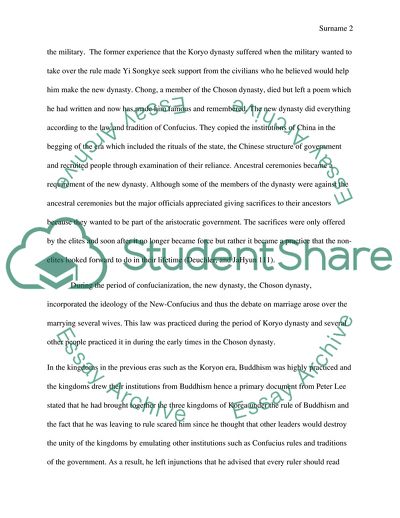Cite this document
(The Dynasty of Choson Essay Example | Topics and Well Written Essays - 1750 words, n.d.)
The Dynasty of Choson Essay Example | Topics and Well Written Essays - 1750 words. https://studentshare.org/history/1821456-history-of-early-modern-korea
The Dynasty of Choson Essay Example | Topics and Well Written Essays - 1750 words. https://studentshare.org/history/1821456-history-of-early-modern-korea
(The Dynasty of Choson Essay Example | Topics and Well Written Essays - 1750 Words)
The Dynasty of Choson Essay Example | Topics and Well Written Essays - 1750 Words. https://studentshare.org/history/1821456-history-of-early-modern-korea.
The Dynasty of Choson Essay Example | Topics and Well Written Essays - 1750 Words. https://studentshare.org/history/1821456-history-of-early-modern-korea.
“The Dynasty of Choson Essay Example | Topics and Well Written Essays - 1750 Words”. https://studentshare.org/history/1821456-history-of-early-modern-korea.


